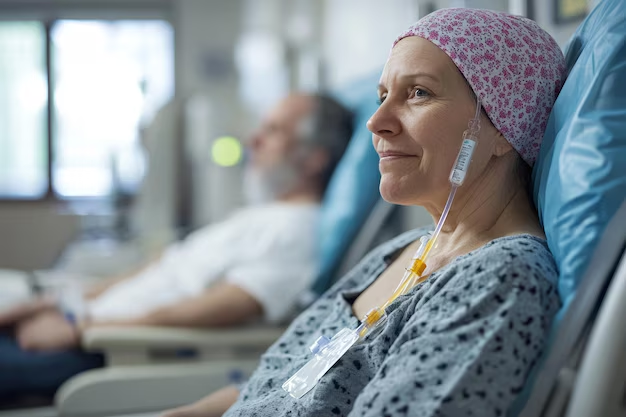Understanding Cancer Remission: A Journey of Hope and Uncertainty
Imagine a world where the terminology of cancer can evolve from being conversations filled with dread and fear to ones of hope and renewed life. While the fight against cancer is undeniably challenging, the concept of remission offers a beacon of hope, signifying a stage where the disease becomes less of an immediate threat. But what exactly does remission in cancer mean? Let's dive deep into this complex topic and unravel its implications.
What Does Cancer Remission Mean?
Not a Cure, but a Positive Step Forward
Cancer remission is often misunderstood as a cure, but fundamentally, remission means the reduction or complete disappearance of the signs of cancer in response to treatment. While it's a positive and hopeful stage, remission does not equate to cured; the possibility of cancer returning still exists.
Types of Remission
Partial Remission
Partial remission indicates that cancer has significantly decreased in size or the number of cancerous cells has been reduced. However, some disease signs may still persist. This type involves definite progress, as the reduction in the tumor or cancerous activity can lead to improved quality of life.
Complete Remission
Complete remission, possibly the most hopeful outcome without claiming a cure, describes a situation where all signs of cancer are undetectable through tests and scans. Yet, cancerous cells might still be in the body at undetectable levels.
The Journey to Remission
How Do Patients Achieve Remission?
The path to remission is as unique as the individuals battling cancer. Factors such as cancer type, stage, treatment choice, and patient health significantly influence this journey.
Treatment Modalities
Surgery: Physically removing tumors can contribute to achieving remission, often used in conjunction with other treatments.
Chemotherapy: This systemic treatment targets rapidly dividing cells and can shrink tumors, potentially leading to remission over several cycles.
Radiation Therapy: Targeted radiation can shrink cancerous growths or eliminate them entirely, integral in certain remission cases.
Immunotherapy: A newer frontier, these treatments empower the immune system to recognize and combat cancer cells more effectively.
Hormone Therapy: Helpful for cancers sensitive to hormone levels, such as certain breast and prostate cancers.
Monitoring Remission
Regular Follow-ups
Once remission is achieved, regular follow-up appointments and screenings are crucial. They help detect any recurrence early, at a more treatable and manageable stage.
- Blood Tests: These are routine checks to look for tumor markers or abnormalities that might indicate a return of cancer.
- Imaging Tests: MRIs, CT scans, and X-rays help visualize areas of concern and track changes over time.
Emotional and Psychological Implications of Remission
Emotional Rollercoaster
Reaching remission is often a joyous milestone, but it also brings a flux of emotions, including anxiety, uncertainty, and the fear of recurrence. Support systems, whether friends, family, or professional counseling, play a vital role in navigating these feelings.
What Remission Means for Life Post-Cancer
Transitioning from Patient to Survivor
For many, entering remission shifts their identity from 'patient' to 'survivor,' a term that reflects resilience and strength.
Redefining Lifestyle
- Diet and Exercise: Embracing a balanced diet and regular exercise can boost overall health and may reduce the likelihood of cancer returning.
- Routine Health Checks: Staying vigilant with regular health check-ups is essential to monitor any changes.
Long-term Considerations in Remission
Risk of Recurrence
The fear of cancer returning can be daunting. It’s important to keep in mind that vigilance does not imply living in fear, but rather empowerment through preparedness.
Living with Uncertainty
Adjusting to life post-cancer often involves managing the uncertainty that comes with remission. Engaging in mindfulness, stress-reduction practices, and support groups provide practical avenues for addressing these challenges.
Empowering Yourself with Knowledge
Navigating Conversations with Healthcare Providers
Being informed empowers patients and their families in their medical journey. Ensure to discuss what remission means in the context of your specific type of cancer with healthcare providers. Key questions might include the risk of recurrence, lifestyle modifications, and understanding treatment options available if cancer returns.
Developing a Personal Support Network
Engaging with others who have experienced similar journeys can be incredibly beneficial. Support groups and networks foster a space for shared experiences and healing.
The Role of Advances in Oncology
Cutting-edge Research and Its Influence on Remission
The fight against cancer is ever-evolving. Advancements in genetics, targeted therapies, and personalized medicine promise to improve remission rates and the quality of life during and after treatment.
Hope of Future Treatments
As researchers continue to explore innovative approaches, there remains hope that the definition of remission will continue to evolve, perhaps leading one day to a broader understanding or even a cure.
In this comprehensive look at remission in cancer, we've explored the varied meanings of remission, the path to achieving it, and the implications it carries for those on their cancer journey. Empowered by information and support, individuals can navigate this chapter of life with resilience and hope for the future.
Summary of Key Takeaways
- Types of Remission:
- Partial: Cancer reduces but remains.
- Complete: All signs of cancer are undetectable.
- Treatment Options: Surgery, chemotherapy, radiation, immunotherapy, and hormone therapy.
- Post-Remission Care: Regular check-ups, a healthy lifestyle, and awareness of recurrence.
- Emotional Considerations: Acknowledge the psychological impact and leverage support systems.
- Future of Cancer Treatment: Stay informed about new therapies and breakthroughs.
🌟 Empowerment through Knowledge: Understand treatment, maintain follow-ups, and engage with survivor communities.
🌱 Healthy Lifestyle: Embrace positive changes for well-being and potentially reduce recurrence risks.
🚀 Hope and Research: Stay hopeful with advancing research bringing new opportunities in cancer care.

Related Articles
- Are Breast Cancer Lumps Painful
- Are Chills a Sign Of Cancer
- Are Colon Spasms a Sign Of Cancer
- Are Lytic Lesions Always Cancer
- Are Polyps Cancer
- Can a Blood Test Detect Cancer
- Can a Ct Scan Detect Cancer
- Can a Dexa Scan Show Cancer
- Can a Gastric Emptying Scan Show Cancer
- Can a Lung Biopsy Cause Cancer To Spread
